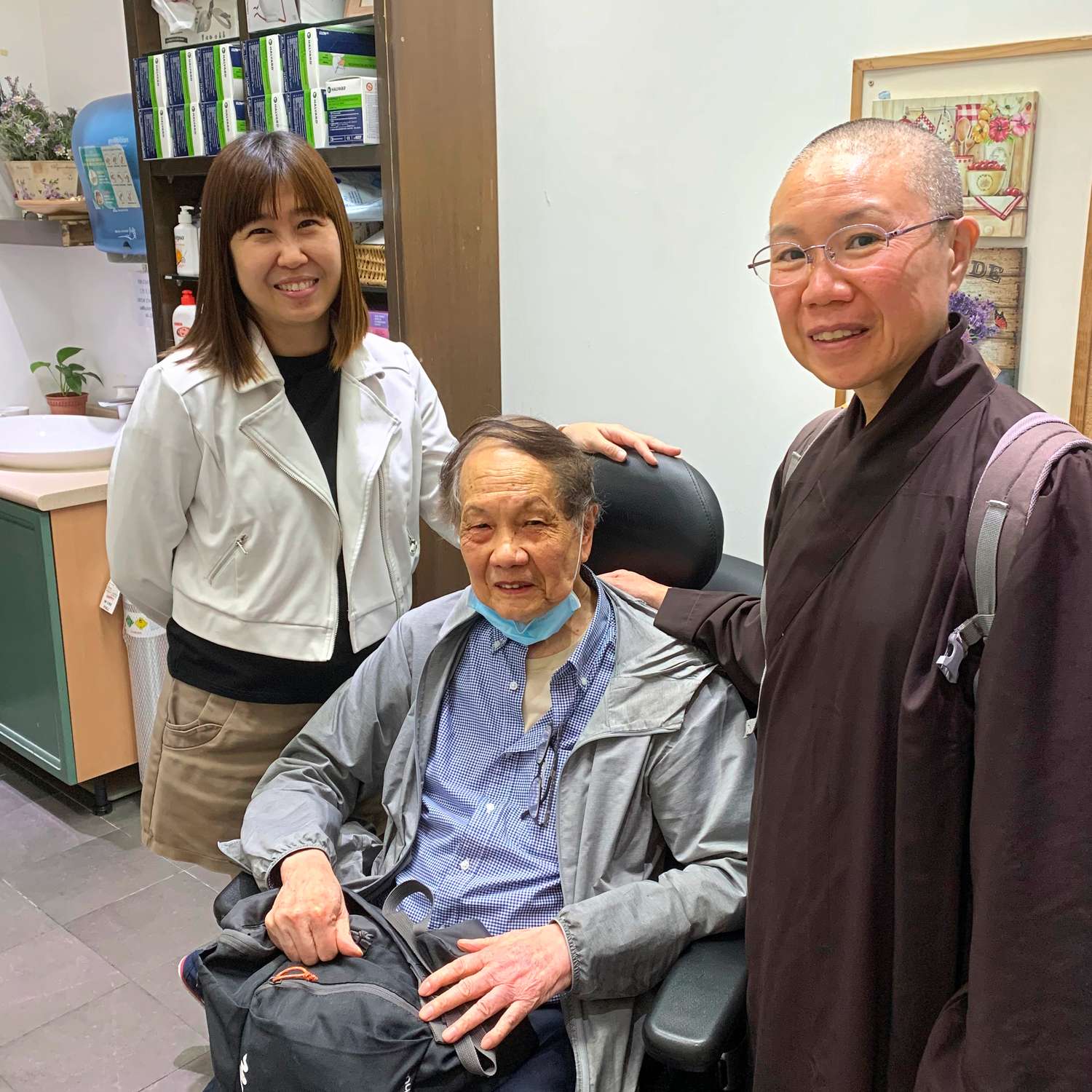Continuing Dad
Sister Chân Trăng Giác Ân
“Dad’s in intensive care.” The call that I’ve dreaded over the years finally came one late morning. “He arrived at the emergency saying he didn’t want to be resuscitated. I don’t know what’s happening, I’m still waiting to talk to the doctor.” Far off in France, a flood of memories came back after this short call with my mother.
Dad had open heart surgery some seven years ago, with complications, and spent almost a month on a ventilator in intensive care. It was a long period of great suffering. Seeing my father hooked up to all the machines, laboring to breathe, his fear, left an indelible mark in my memory. After he came out, he was almost annoyed at having been dragged back to life, it was one of the first things he said when he could finally speak! We then drafted an Advanced Care Plan (ACP) with the help of the social worker at the hospital, making clear his end of life wishes. Against all odds, dad recovered almost completely and was back at work a few months later. But knowing that his heart was still weak, I had a strong sense that his heart could be the cause of his death eventually.
In a dream-like state, I found dad’s ACP in the midst of my own medical records. What possessed me to bring them all the way from Singapore? Leafing through it, I saw my own signature, a promise to dad that if he couldn’t speak for himself, that I, his daughter, would respect his end of life wishes for him, no resuscitation, no intensive care, no artificial life support.
I finally found the courage to call the hospital in Singapore. It was 2AM there, the graveyard shift, but in intensive care, there is always a doctor on call, and he was able to talk to me.
“Your dad has been resuscitated twice already and is intubated (on a ventilator), his heart is in very poor condition. As a team, we have decided not to resuscitate him a third time if he has another cardiac arrest.” The doctor tried to deliver this as compassionately as possible. Everything that my father did not want had come to pass! I offered to send the doctor the ACP, so that they too could know dad’s last wishes, which the doctor gratefully accepted. These decisions of whether to resuscitate a patient or not must not be easy for doctors to make as well, and I am sure these ACP documents help them also. I knew that despite everything, the doctors were also doing their best.
When I put down the phone, I silently thought of my dad in intensive care, hooked up to all sorts of machines, beeping quietly, all alone, in the dark, unable to respond to anything. “Dad, help is coming, I’ve let them know what you want,” I told him silently, and deep in my heart I really wished he knew that.
My father passed away the next day peacefully, as they finally stopped administering the life supporting drugs, while mom accompanied him on his last journey. He slipped away, never regaining consciousness. My brother and I arrived a few days later, helping mom with the funeral and sparing her the ordeal of cleaning and clearing up dad’s space (my father lived alone). As we interacted with his various colleagues at work, friends and neighbors, we were slowly able to reconstruct the last few weeks of dad’s life. Someone who was mostly alone, sick (and refusing to go to hospital), yet able to receive help and compassion from friends and concerned strangers alike. My father, being a medical doctor himself, probably had a strong sense that the end was near, and didn’t want to prolong it more than necessary. The fact that he declared on arrival at the hospital, “I don’t want to be resuscitated,” told me that he had nothing left unsaid to the family. I discovered, as I slowly sorted through my father’s things, that the most present and pertinent question for me was, “Dad, as you made the final journey, did you know that you were loved?” Because I knew in my heart of hearts that I, for one, loved him. I also suddenly felt very strongly that if one knows that they are loved, even if they are alone, they can die in great peace.
While mulling over this question with a friend a few weeks later, he asked me, “Can you be alright never knowing?”
I took this as my koan for a few weeks, and then one day I suddenly realized, “Dad, I won’t ever know whether you knew that you were loved, but I can know that for myself.” With the practice, I have tasted being held, accepted and loved in a deep and unconditional way. I have swum in the waters of boundless love, but how often do I remember this? One day, when I’m in a cold and lonely place, can I remember that I am loved? Still? Always?
I had found a way to continue my father. With that thought, dad in me was suddenly free. He could be who he was, where he was, when he died. It didn’t matter so much anymore if he knew or not, because I can continue this work for him. Thank you, dad.
